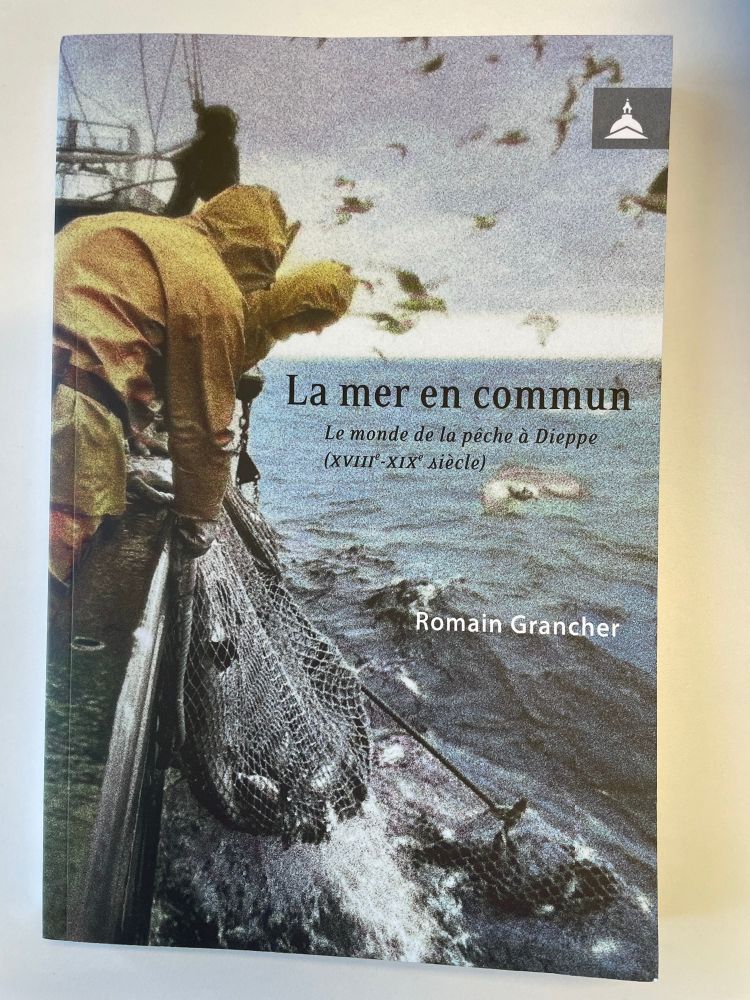
Author of The Paradoxes of Ignorance (2023) @stanfordpress.bsky.social

On se retrouve les 25-26 septembre 2025 à l'université de Rouen Normandie !




On se retrouve les 25-26 septembre 2025 à l'université de Rouen Normandie !
Happy to share this event, part of #ConEnvHist project on the environment♻️and botany🌿
In Milan, Oct13 with some great colleagues on practices and theories of knowledge. Attendance is free
@sergiooe.bsky.social
#environmentalstudies #environment #histsci #agriculture
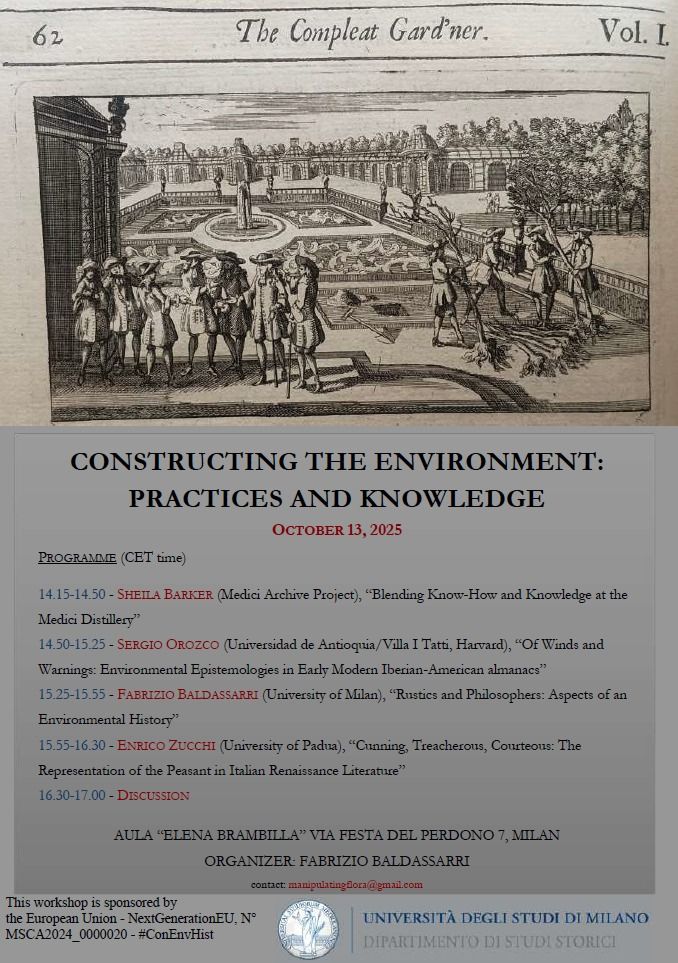
Happy to share this event, part of #ConEnvHist project on the environment♻️and botany🌿
In Milan, Oct13 with some great colleagues on practices and theories of knowledge. Attendance is free
@sergiooe.bsky.social
#environmentalstudies #environment #histsci #agriculture

We are thrilled to announce that @davidrarmitage.bsky.social's
article on his discovery of a new John Locke manuscript is out now👇
It sheds new light on Locke's practical involvement in political economy & his engagement with Ireland 📜🗃️
That is not a coincidence.
We are thrilled to announce that @davidrarmitage.bsky.social's
article on his discovery of a new John Locke manuscript is out now👇
It sheds new light on Locke's practical involvement in political economy & his engagement with Ireland 📜🗃️
That is not a coincidence.
>> Workshop: ‘Power Couples? Collaborations at Work and at Home, c. 1750-1914’ – CALL FOR PAPERS - due 1 Sept. #skystorians 🗃️ Thanks to @georgianlords.bsky.social for the heads-up!
royalhistsoc.org/calendar/wor...
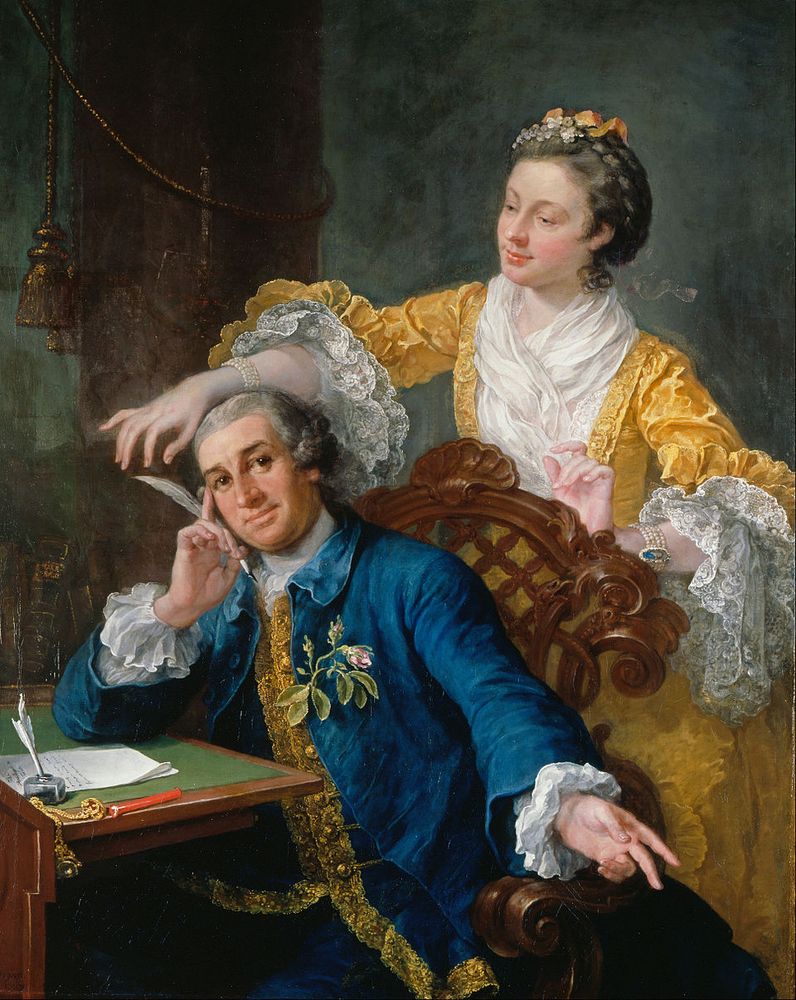
>> Workshop: ‘Power Couples? Collaborations at Work and at Home, c. 1750-1914’ – CALL FOR PAPERS - due 1 Sept. #skystorians 🗃️ Thanks to @georgianlords.bsky.social for the heads-up!
royalhistsoc.org/calendar/wor...
René Descartes, the founder of modern philosophy, was furiously condemned by his contemporaries. Why did they fear him? | by Sandrine Parageau aeon.co/essays/was-r... #Descartes #philosophy #PhilSky #philsci

René Descartes, the founder of modern philosophy, was furiously condemned by his contemporaries. Why did they fear him? | by Sandrine Parageau aeon.co/essays/was-r... #Descartes #philosophy #PhilSky #philsci
René Descartes, the founder of modern philosophy, was furiously condemned by his contemporaries. Why did they fear him?
By Sandrine Parageau
aeon.co/essays/was-r...
Descartes at PG:
www.gutenberg.org/ebooks/autho...
#Books #Literature #Philosophy

René Descartes, the founder of modern philosophy, was furiously condemned by his contemporaries. Why did they fear him?
By Sandrine Parageau
aeon.co/essays/was-r...
Descartes at PG:
www.gutenberg.org/ebooks/autho...
#Books #Literature #Philosophy
(Plus- John Dee)
Marshaling our marbles: roughlydaily.com/2025/07/13/i...

(Plus- John Dee)
Marshaling our marbles: roughlydaily.com/2025/07/13/i...


Le programme ➡️ aphrabehnparis.sciencesconf.org/resource/pag...

Le programme ➡️ aphrabehnparis.sciencesconf.org/resource/pag...
CFP - deadline 1 Sept ➡️ whocares.hypotheses.org/call-for-pap...

CFP - deadline 1 Sept ➡️ whocares.hypotheses.org/call-for-pap...
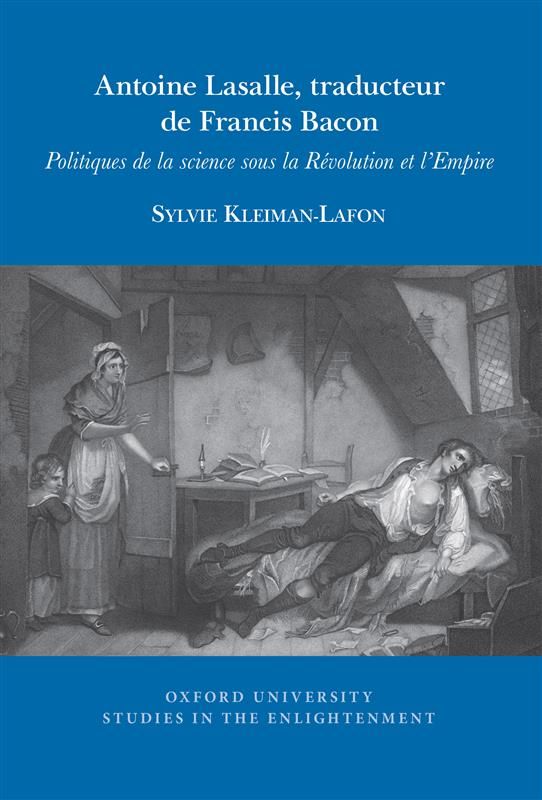
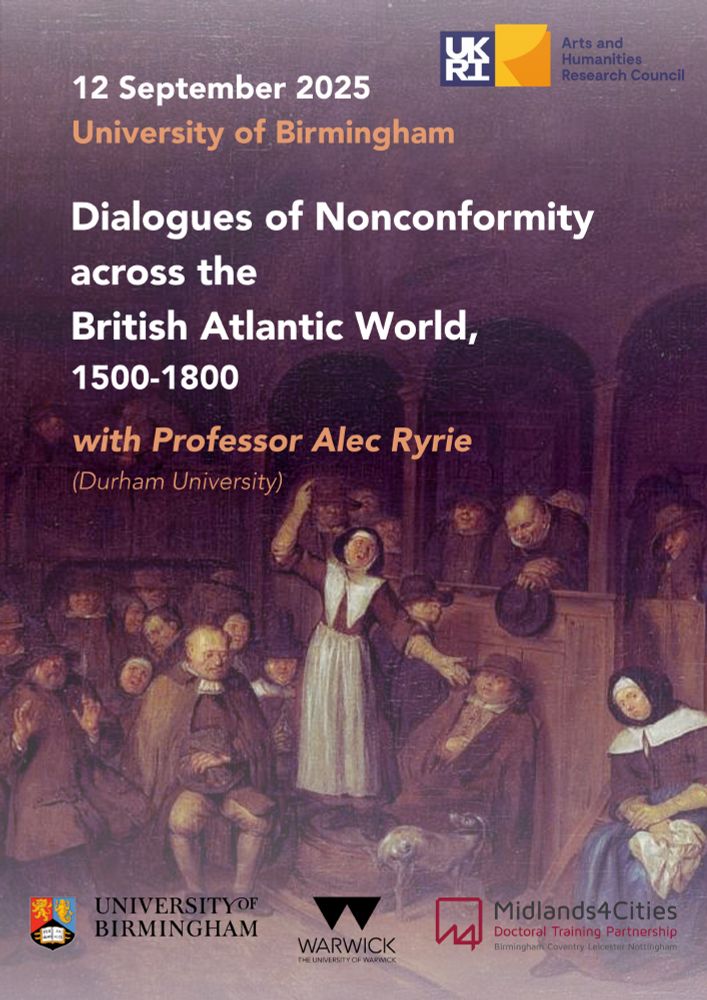
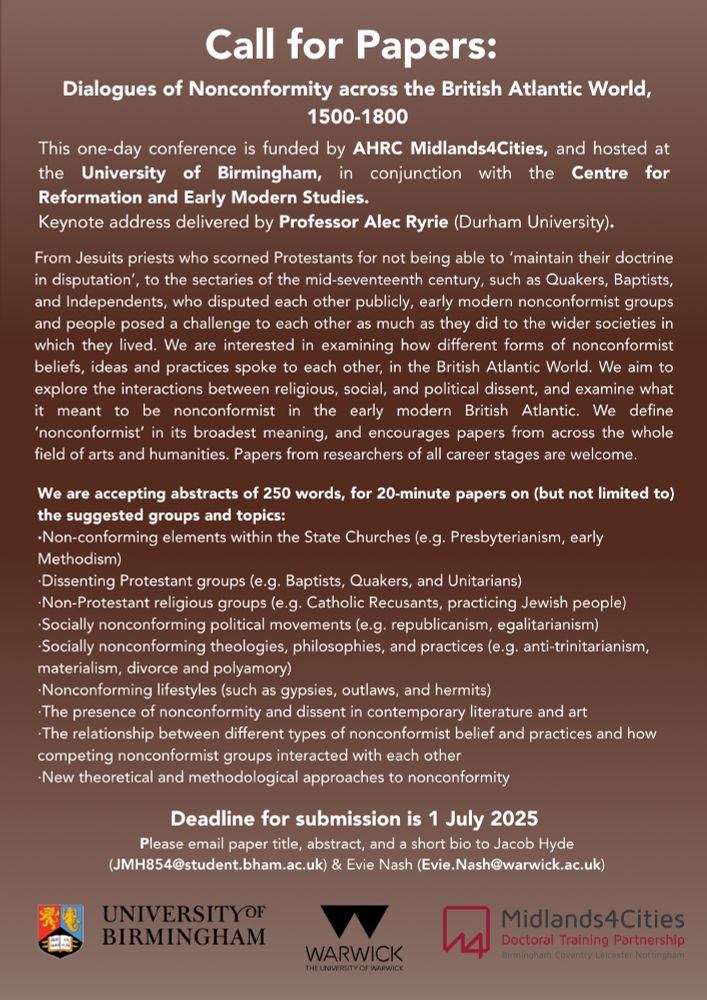
from @crew-ur4399-usn.bsky.social
@sorbonnenouvelle.bsky.social
📘launch of
Fragmented Powers: Confrontation and Cooperation in the English-Speaking World 📘@emeraldpublishing.bsky.social
@emmanuelleavril.bsky.social
@lcossubeaumont.bsky.social
David Fée
@fabricemourlon.bsky.social
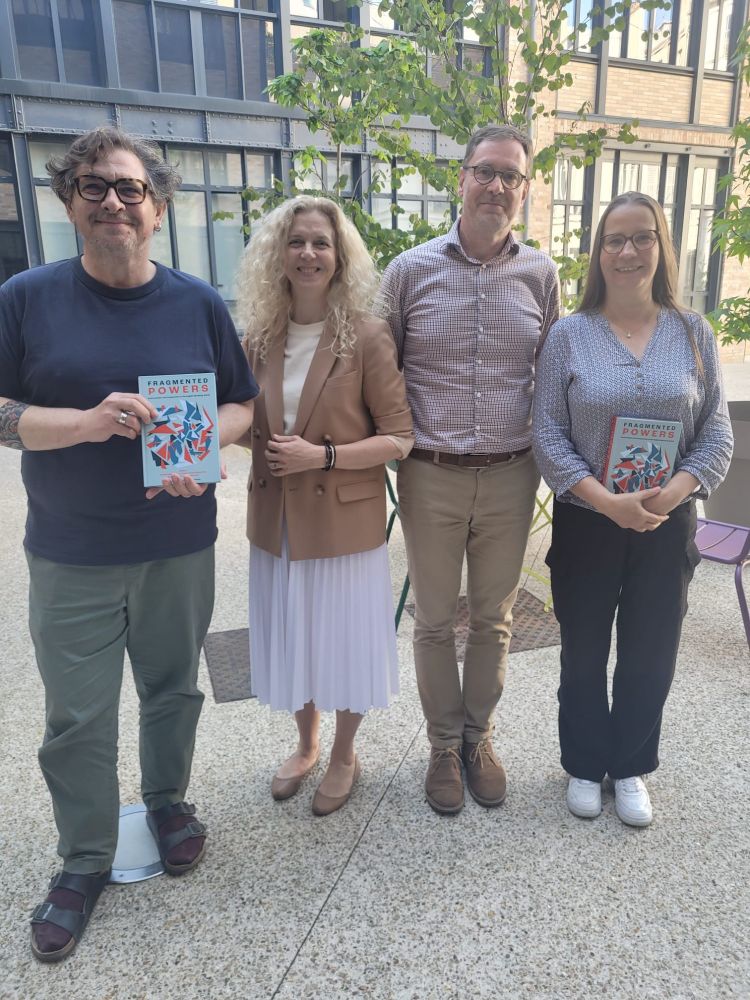
from @crew-ur4399-usn.bsky.social
@sorbonnenouvelle.bsky.social
📘launch of
Fragmented Powers: Confrontation and Cooperation in the English-Speaking World 📘@emeraldpublishing.bsky.social
@emmanuelleavril.bsky.social
@lcossubeaumont.bsky.social
David Fée
@fabricemourlon.bsky.social


University of Angers) - Organised by Anne-Florence Quaireau and Tom Williams - Keynote speaker: Gabor Gelléri (@gaborgelleri.bsky.social)
Please help us circulate this CFP far and wide! :-)
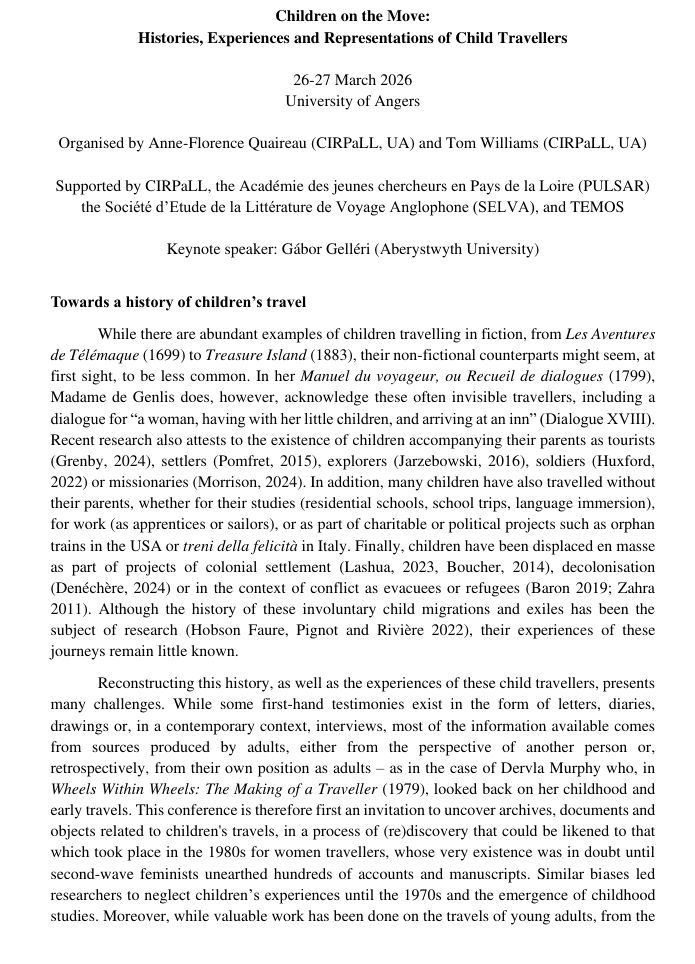
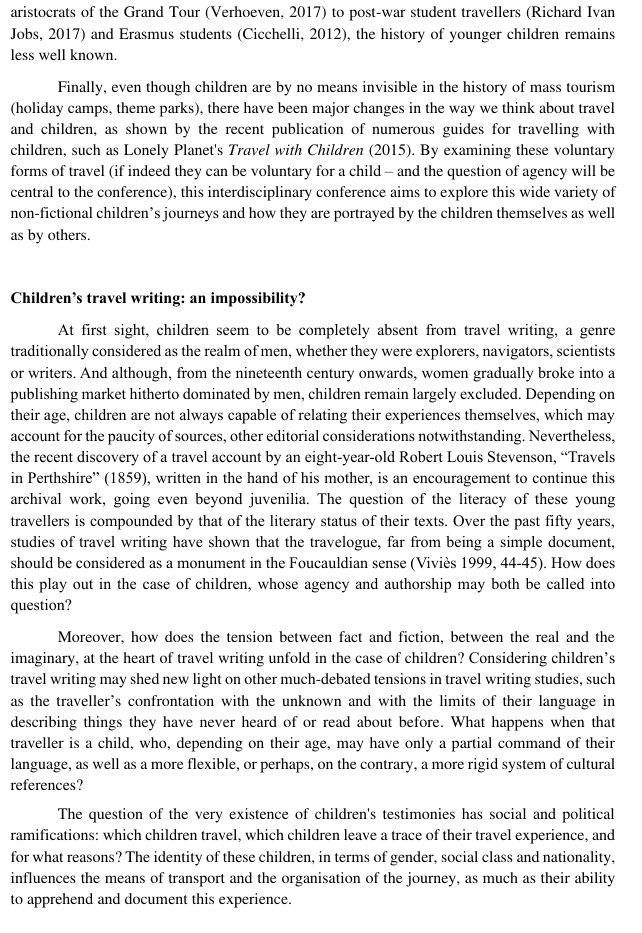
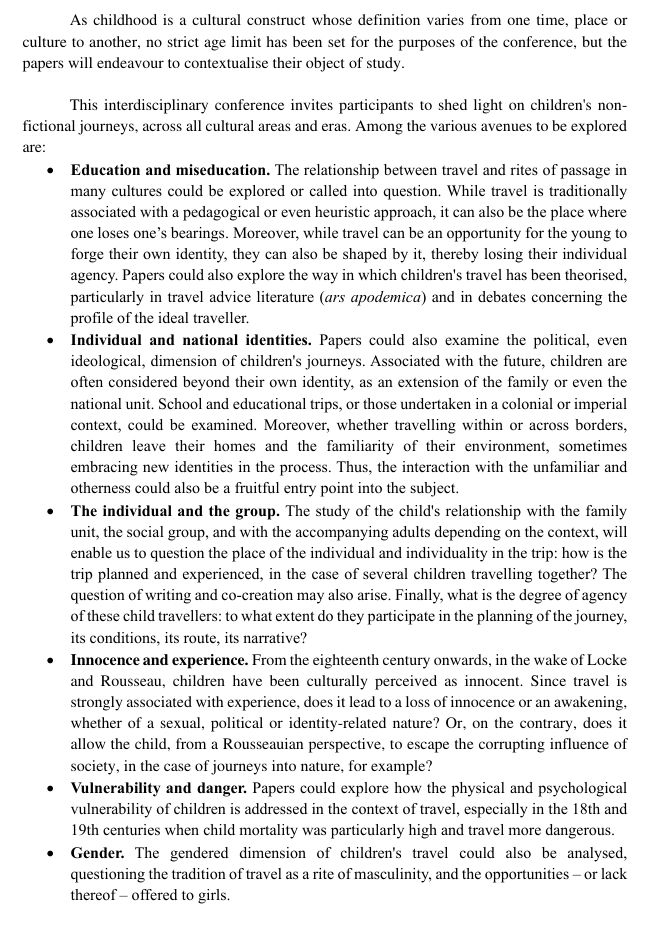
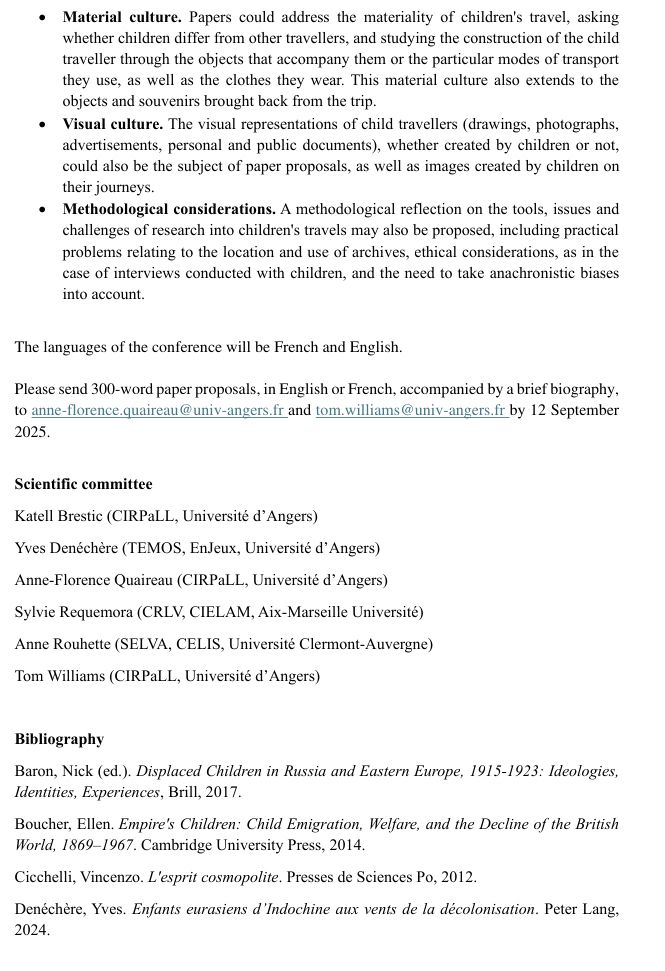
University of Angers) - Organised by Anne-Florence Quaireau and Tom Williams - Keynote speaker: Gabor Gelléri (@gaborgelleri.bsky.social)
Please help us circulate this CFP far and wide! :-)
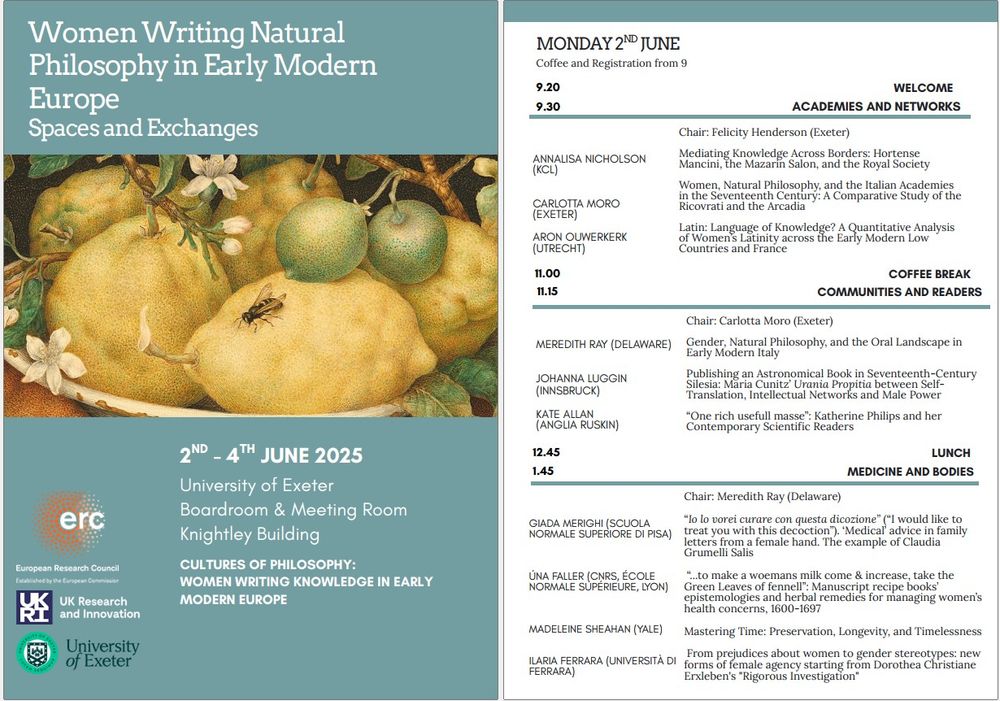
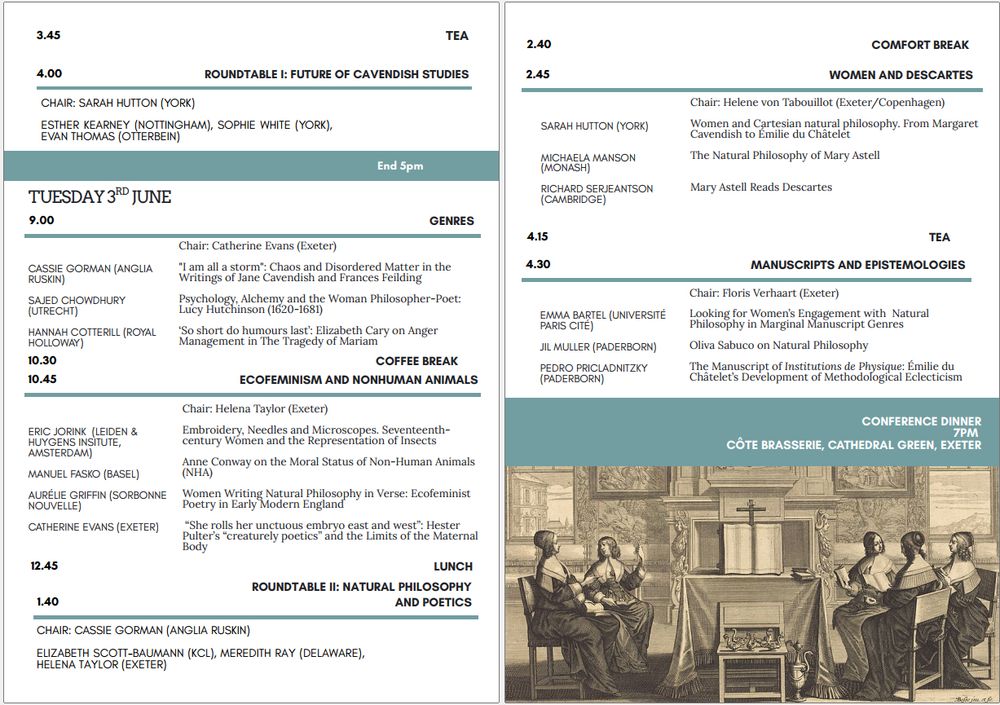
![WED 4th JUNE
9.30-11 METHODS
Chair: Eric Jorink (Leiden)
Kirsten Walsh (Exeter), Action at a Distance—Reflections on the History of Women in Science
Peter West (Northeastern University London), “A Scientific Association”: New Digital Methods for Understanding the Impacts of Early Women Writers on the Development of Science and Philosophy
Marina Aguilar (Universidad Nacional de Educación a Distancia (UNED), Tratado Philosóphico-poético escótico by María de Camporredondo as an example of Hispanic Women Thinker from the Modern Age
Coffee
11.15-12.45 RECEPTION, AUTHORSHIP, and POPULARISATION
Chair: Bodil Hvass Kjems (Copenhagen)
Arianne Margolin (Independent), Jeanne Dumée’s Plurality of Worlds: The Feminine Voice and the Emergence of the Fiction Scientifique
Aretina Bellizzi (Ghent), From a New Readership to a New Authorship. Vernacular Plato and the Female Audience in Early Modern Italy
Floris Verhaart (Exeter), The Doctor, the Theologian, and the Translator: Medicine and Divine Providence in the Writings of Johan van Beverwijck, Anna Maria van Schurman, and Johanna Dorothea Lindenaer
CLOSE AND LUNCH
This conference is supported by the European Research Council-selected Starting Grant, ‘Cultures of Philosophy: Women Writing Knowledge in Early Modern Europe’, funded by UK Research and Innovation (UKRI), under the UK government’s Horizon Europe funding guarantee [grant number EP/Y006372/1].](https://cdn.bsky.app/img/feed_thumbnail/plain/did:plc:peyr652ptzk3m4gf3dgs4gmk/bafkreihuop4aupg2mp34d6apimeredvytwqabfll73i3g5ynem2eahujju@jpeg)
www.ceu.edu/article/2025...

www.ceu.edu/article/2025...
www.history.ac.uk/events/i-am-...




